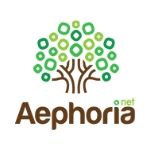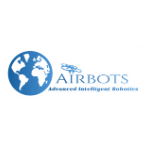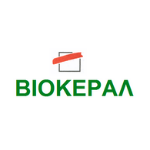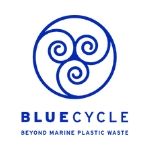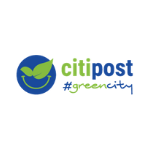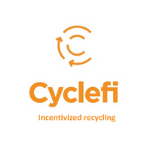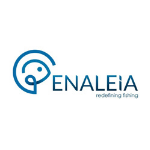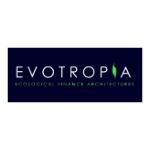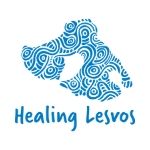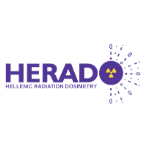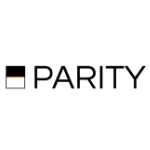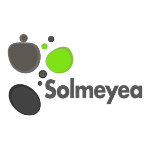|
FUNDED PROJECTS
|
Regional cooperation for the transnational ecosystem sustainable development (RECONNECT) project aims to develop strategies for sustainable management of Marine Protected Areas (MPAs) and Natura 2000 sites. The overall objective of the project is to promote efficient management of natural systems which will enhance the competence of local management authorities through the development of a multidisciplinary Decision Support System (DSS). Read RECONNECT latest news here.
|
Globaqua FP7 European Commission Project:. is an EU-funded project aiming to identify the prevalence of, and interaction between, stressors under water scarcity in order to improve knowledge of relationships between multiple stressors and to improve water management practices and policies. Read GLOBAQUA latest newsletter here.
|
BRIGAID H2020 European Commission Project: is a 4-year project (2016-2020) under EU Horizon 2020 aimed to effectively bridge the gap between innovators and end-users in resilience to floods, droughts and extreme weather. The objective of BRIGAID is to provide innovators with guidance to develop testing plans which increase the TRL of an innovation and its potential for market uptake. Read BRIGAID latest newsletter here.
|
DAFNE H2020 European Commission Project: Decision Analytic Framework to explore the water-energy-food nexus in complex transboundary water resource systems of fast developing countries. The overall objective of DAFNE is to establish a decision-analytic framework (DAF) for Participatory and Integrated Planning (PIP). Read DAFNE latest newsletter here.
|
SIMRA H2020 European Commission Project: is a project funded by the European Union's Horizon 2020 research and innovation programme. SIMRA seeks to advance understanding of social innovation and innovative governance in agriculture, forestry and rural development, and how to boost them, particularly in marginalised rural areas across Europe, with a focus on the Mediterranean region (including non-EU). Read SIMRA latest newsletter here.
|
OpenAire-Connect H2020 European Commission Project: OpenAIRE-Connect aims to provide technological and social bridges, and deliver services enabling uniform exchange of research artefacts (literature, data, methods), with semantic links between them, across research communities and content providers in scientific communication. It will introduce and implement the concept of Open Science as a Service (OSaaS) on top of the existing OpenAIRE infrastructure, delivering out-of-the-box, ondemand deployable tools. Read OpenAIRE Connect latest newsletter here.
|
 COASTAL H2020 European Commission Project: is a unique research and innovation project, a multi-actor collaboration between entrepreneurs, administrations, stakeholders and experts in coastal and rural natural and social sciences and sciences to formulate and evaluate business solutions and policy recommendations to improve coastal-rural synergy to promote rural and coastal development while preserving the environment. Read COASTAL latest newsletter here.
|
AMARe - Actions for Marine Protected Areas, INTERREG MED Project. This project aims to develop concrete pilot actions and coordinated strategies in selected Marine Protected Areas (MPAs) to resolve conflict hotspots affecting marine biodiversity and the services it provides. The general goal is to adopt an ecosystem-based approach considering the goals of the Marine Strategy Framework Directive (MSFD) across MPAs. Find AMARe new flyer here.
|
 Call: RUR02, H2020: Research & Innovation Actions Coordinator: University of Pisa, 25 European partners Duration: 2019-2023. DESIRA will develop the concept of Socio-Cyber-Physical Systems to advance understanding of the impact of digitisation in rural areas, linking analysis directly to the United Nation’s Sustainable Development Goals.
|
LIFE‐IP AdaptInGR: Boosting the implementation of adaptation policy across Greece (LIFE17 IPC/GR/000006). The overall goal of the LIFE-IP AdaptInGR project is to support the implementation of the national adaptation strategy in Greece. To this end it will build national and regional capacity for coordinating, prioritizing, monitoring and mainstreaming adaptation policy actions. Pilot projects will be developed in priority sectors for 3 regions and 5 municipalities. Our cluster contributions to the project are supported via our collaboration with the Bank of Greece. Duration: 2019‐2026 (8 years)
|
EIT CLIMATE-KIC 2019 PROJECTS:

|
GLOBAL ROUNDTABLE FOR SUSTAINABLE SHIPPING
The IPCC warned of unprecedented changes if we exceed 1.5 degrees of warming. Maritime transport emits around 940 million tonnes of CO2 annually and is responsible for about 2.5% of global greenhouse gas (GHG) emissions (3rd IMO GHG study). These emissions are expected to increase significantly if mitigation measures are not implemented quickly. According to the 3rd IMO GHG study, shipping emissions could, in a business-as-usual scenario, increase between 50% and 250% by 2050, undermining the objectives of the Paris Agreement. The Global Roundtable for Sustainable Shipping aims at bringing together shipowners, shipbuilders, technology developers and researchers, ports and policy makers, on innovation related to zero emissions shipping, from across the globe, to target net-zero emissions by 2050. It will be launched at a specific session on the zero-carbon ocean shipping at the two-day COP 25 in Santiago, Chile hosted by SDSN on December 9th & 10th 2019.
|
|
The UN SDSN 4-Seas is a Euro-Asian Initiative that aims to mobilize science for sustainable blue growth in the Mediterranean Sea, the Black Sea, the Caspian Sea and the Aral Sea, in order to protect the future state of global seas and oceans through a Blue Sustainability Transition Plan “from rivers to oceans”. The initiative is led by SDSN Greece and SDSN Black Sea, established leaders on research for the implementation of SDGs in rivers and wetlands, coastal areas, seas and oceans, shipping, maritime transport, offshore energy production, fishing, aquaculture, marine litter and related education and training.
|
 FRESQO Project FRESQO Project
The main focus of FRESQO project is the demonstration of the capabilities of state-of-the-art deep learning architectures and more specifically Convolutional Neural Networks (CNN) in analyzing multispectral images for estimating the freshness of fish. By fish freshness, it is meant the estimation of the apparent days since harvest, which may not coincide with the actual number of days in cases of problematic storage conditions. The targeted scenario involves a compact and portable system which will consist of a snapshot spectral imaging system and a mini-pc system like the NVIDIA Jetson, while the interfacing with the user will be achieved though transmission of the processed images to his/her smartphone.
|
 NEANIAS NEANIAS
Novel EOSC Services for Emerging Atmosphere, Underwater & Space Challenges - aims to promote Open Science practices and actively contribute to the materialization of the EOSC ecosystem by engaging large scientific and professional communities, extending its offerings and supporting its technological, regulatory, procedural, strategic and business development. NEANIAS will drive the co-design and delivery of innovative thematic services, derived from state-of-the-art research assets and practices in three major sectors – Underwater, Atmospheric and Space Research – and will seek business innovation cases by exemplifying reuse in Energy, Smart Cities and other domains, engaging multitudinous academic, research and business actors.
|
EYDAP: NextGen and DESSIN projects
 Present water treatment systems are very robust but do not have the flexibility to deal with changes in climate, demography, water demand etc. Therefore, wastewater reuse depends highly on the development of new distributed modular and compact systems with the flexibility to quickly react to quality requirements on demand. EYDAP through its participation in two European projects named Dessin and NextGen (one FP7 and one HORIZON 2020) applies sewer mining technology. Sewer Mining is a concept that is gaining traction and is considered an innovative way to address water scarcity. It extracts wastewater directly from the sewer network treats it on- site and produces water for on-site use. EYDAP through its participation in NextGen and previously in DESSIN brings an integrated energy-water-material management for a high value-added Circular Economy, deployed in energy efficiency, materials recycling, innovation as well as the formation of industrial ecology networks as a new production model. More specifically EYDAP for Present water treatment systems are very robust but do not have the flexibility to deal with changes in climate, demography, water demand etc. Therefore, wastewater reuse depends highly on the development of new distributed modular and compact systems with the flexibility to quickly react to quality requirements on demand. EYDAP through its participation in two European projects named Dessin and NextGen (one FP7 and one HORIZON 2020) applies sewer mining technology. Sewer Mining is a concept that is gaining traction and is considered an innovative way to address water scarcity. It extracts wastewater directly from the sewer network treats it on- site and produces water for on-site use. EYDAP through its participation in NextGen and previously in DESSIN brings an integrated energy-water-material management for a high value-added Circular Economy, deployed in energy efficiency, materials recycling, innovation as well as the formation of industrial ecology networks as a new production model. More specifically EYDAP for

Dessin’s needs has installed and set in operation a sewer mining modular unit which consists of an MBR/RO unit for urban green irrigation at the point of demand which is clearly of direct benefit for the sustainability of urban water management. Through Next Gen EYDAP is going to apply the same technology in the Athens Urban Tree Nursery part of the Goudi Park, an area in the process of redevelopment and regeneration to become the key metropolitan park of the capital. To address resource efficiency issues in a circular economy context, compost-based eco-engineered growing media are also produced and reused as onsite fertilizers and thermal energy recovery schemes are investigated to minimize the pilot’s environmental footprint. These technologies are applied and tested for the first time in Greece in a real-world application, and the results aim to serve as a significant step towards transferable, modular, scalable and circular solutions. |
